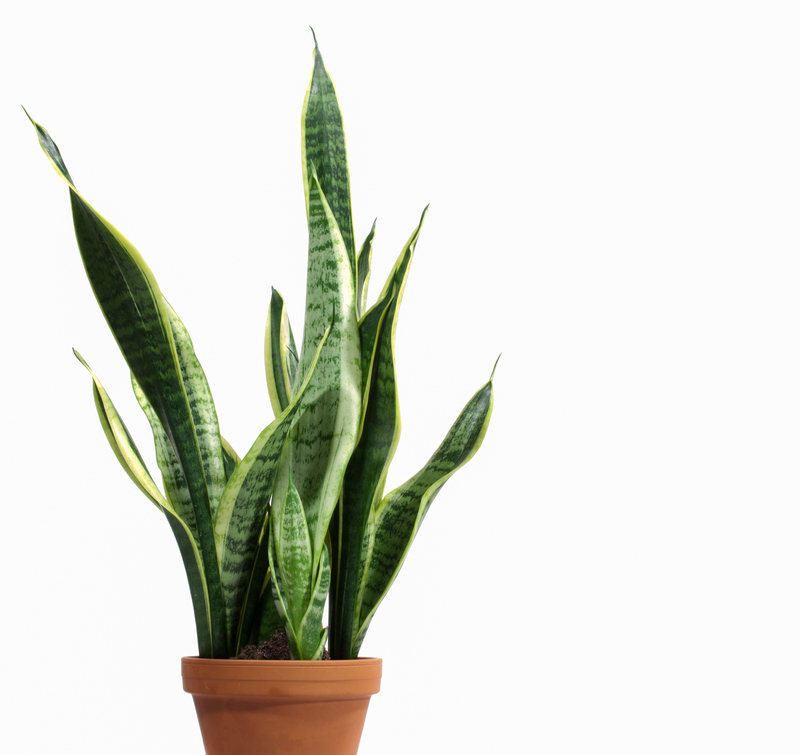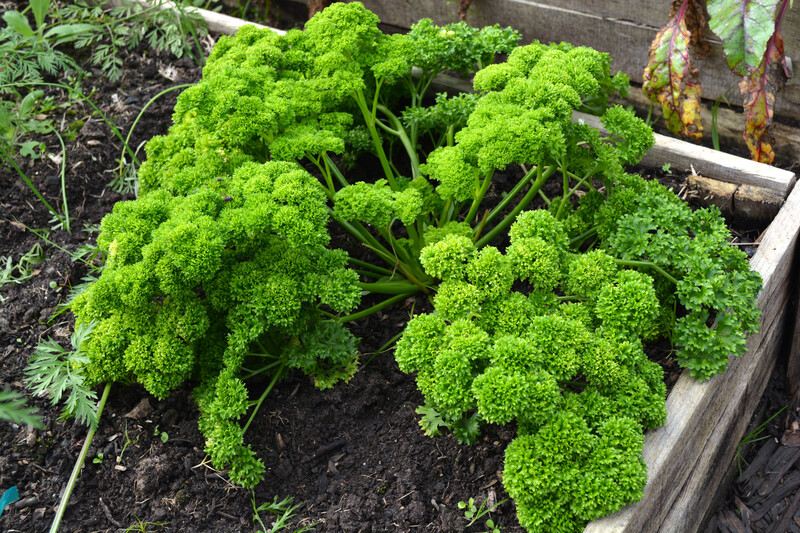Top Tactics to Keep Your Garden Plants Healthy in Winter
Posted on 19/06/2025
Top Tactics to Keep Your Garden Plants Healthy in Winter
As the days grow shorter and temperatures drop, it's crucial for gardening enthusiasts to start preparing for the harsh winter months. Keeping your garden plants healthy in winter is no easy task, but with the right strategies and a little extra care, you can ensure your beloved greens survive and even thrive through the coldest season.
Understanding Winter Challenges for Garden Plants
Before diving into the best tactics to keep your winter plants healthy, it's essential to understand the main challenges your garden faces. Winter introduces threats such as:
- Freezing temperatures that can damage roots, stems, and foliage
- Snow and ice accumulation that can break branches or smother delicate plants
- Reduced sunlight which limits photosynthesis
- Strong, drying winds that dehydrate both soil and plant tissue
- Soil compaction and poor drainage due to excessive moisture or frozen ground
Understanding these challenges is the first step towards implementing effective winter plant care approaches. Let's look at optimum ways to protect your garden plants during winter.

Top Tactics for Healthy Winter Garden Plants
1. Select the Right Plants for Your Climate
The foundation for healthy garden plants in winter begins long before the first frost. Choose plant varieties that are hardy for your USDA zone. Native and cold-adapted species are better equipped to survive and thrive during winter's chill. Before planting, research each plant's specific winter tolerance.
- Consult local nurseries or master gardeners for guidance on winter-hardy selections.
- Favor perennial varieties with proven track records in your specific region.
2. Mulching: Your First Line of Defense
A critical step to maintaining winter garden health is the proper use of mulch. Mulching helps to regulate soil temperature, retain moisture, and protect plant roots from the freeze-thaw cycle.
- Apply 2-4 inches of organic mulch (such as straw, wood chips, or shredded leaves) around the base of your plants.
- Leave a small gap around the stem to prevent rot and rodent nesting.
- Reapply mulch after heavy snow or rainfall to maintain consistent coverage.
Mulch acts as an insulating blanket, and also provides nutrients as it gradually decomposes, boosting soil health in winter.
3. Watering Wisely Before and During Winter
Ensuring your plants receive adequate moisture before the ground freezes is vital. Healthy winter garden plants need water to withstand cold winds and dry air.
- Deeply water your garden in late fall, before the soil freezes.
- Pay special attention to evergreen plants and newly planted trees and shrubs, as they continue to lose water through their leaves.
- Water during mild winter spells if there is a lack of snow cover, as wind and sunlight can quickly dry out unprotected soil.
Avoid overwatering, as saturated soil can lead to root rot, especially when drainage is compromised by frost.
4. Provide Wind and Frost Protection
Wind and sudden cold snaps can be devastating. Take proactive steps to shield your plants and improve garden plant survival in winter.
- Install temporary windbreaks such as burlap screens, fencing, or strategically placed evergreens.
- Cover sensitive plants with frost cloths, old sheets, or horticultural fleece on frigid nights.
- Use cloches or mini greenhouses on small, vulnerable plants.
Be sure to remove covers during the day to prevent overheating and ensure good air flow, which reduces disease risks.
5. Pruning and Cleaning Your Garden Before Winter
Late autumn is the perfect time to tidy up the garden and prepare your plants for winter.
- Prune dead, diseased, or damaged branches from trees and shrubs. This reduces the risk of breakage from snow and ice and helps prevent the spread of disease.
- Remove any spent annuals and clear away fallen leaves (except where being used as mulch).
- Discard debris that may harbor pests or fungal pathogens.
However, be careful not to prune spring-blooming plants too heavily, as you may inadvertently remove next year's flower buds.
6. Use Cold Frames and Greenhouses
To keep garden plants healthy in cold weather, consider extending the season using cold frames, hoop tunnels, or greenhouses.
- Cold frames trap heat and create a microclimate that allows you to grow hardy vegetables and herbs well into winter.
- Greenhouses provide complete protection, enabling you to cultivate tender crops or overwinter prized specimens.
- Mini hoop houses or tunnels made from PVC pipe and clear plastic can safeguard beds of greens or young transplants.
*Regularly vent these enclosures to avoid fungal build-up and overheating, even in winter.*
7. Monitoring for Pests and Disease
While many pests go dormant, others persist in winter. Healthy garden plants in winter are less susceptible, but regular monitoring is essential.
- Inspect your plants for signs of pests, such as aphids, mites, or scale insects, that may overwinter in bark or soil.
- Remove and dispose of infected plant parts promptly to contain the spread of disease.
- Consider introducing beneficial insects or using dormant oil sprays for severe infestations.
Maintaining cleanliness and good hygiene practices are vital to minimizing wintertime plant stress.
8. Providing Additional Light, Where Necessary
Low light is a major stressor for many garden plants during winter. If you're overwintering tender plants indoors or in a greenhouse, supplementing with grow lights can help.
- Place plants in the brightest spot possible, ideally south-facing windows.
- Use full-spectrum LED grow lights to provide 10-12 hours of light per day for optimal health.
- Avoid hot, drafty locations near radiators or doors.
9. Adjusting Fertilization Practices
Most garden plants enter a state of dormancy or reduced growth during winter. Excessive fertilization can stress plants or encourage weak, frost-sensitive growth.
- Cease or significantly reduce fertilizer applications in late autumn.
- If fertilizing indoor overwintering plants, use a diluted, balanced formula sparingly.
- Rely on organic matter added in the fall to gradually enrich the soil without stimulating excessive activity.
*Remember: Overfeeding is as harmful as underfeeding in the winter months!*
10. Specific Care for Container Plants and Houseplants
Container-grown plants and houseplants require unique attention to stay healthy during winter:
- Move containers to sheltered locations, such as against a south-facing wall or inside an unheated garage or conservatory.
- Insulate pots with bubble wrap, hessian, or place them inside larger containers filled with mulch or straw.
- Water less frequently, but do not let soil dry out completely.
- For tropical houseplants, maintain humidity by regularly misting or using a humidity tray.

Frequently Asked Questions About Protecting Garden Plants in Winter
How do I know if my garden plants need extra protection?
Certain plants--such as tender perennials, young shrubs, or newly transplanted specimens--are more susceptible to winter damage. Look for varieties labeled as "frost-tender" or "marginally hardy" in your zone. If in doubt, a little extra protection is always wise.
Should I cut back all my perennials before winter?
Not all perennials need cutting back. Some, like ornamental grasses, provide valuable winter habitat for wildlife and shelter their own crowns. Only cut back plants that are diseased or turn completely brown and mushy.
How often should I water my garden during winter?
The frequency of watering depends on your climate, soil, and plants. Water deeply in late fall and occasionally during dry winter spells if the soil isn't frozen. Never water if the ground is icy or saturated.
What kind of mulch works best for winter protection?
Use loose, insulating organic materials like straw, pine needles, or shredded leaves. Avoid heavy layers of non-breathable mulches like plastic, which can starve roots of oxygen. *Organic mulch also promotes soil health as it decomposes.*
Conclusion: A Healthy Winter Garden Sets the Stage for Spring
By implementing these top tactics to keep your garden plants healthy in winter, you'll be rewarded with robust, resilient plants that bounce back beautifully when warm weather returns. Remember, a little winter care goes a long way--from thorough mulching to vigilant protection and smart watering, your garden will thank you come springtime.
Whether you're tending to an ornamental landscape, food plot, or cherished container collection, winter preparation ensures that your green oasis survives, thrives, and flourishes for seasons to come. Keep these tips handy and enjoy the beauty and promise of a healthy winter garden!
Latest Posts
Creating a Vibrant Environment Packed with Child Attractions
Exploring Creative Concepts for Garden Seating Layouts
Breaking Ground in Your Forgotten Garden Makeover

